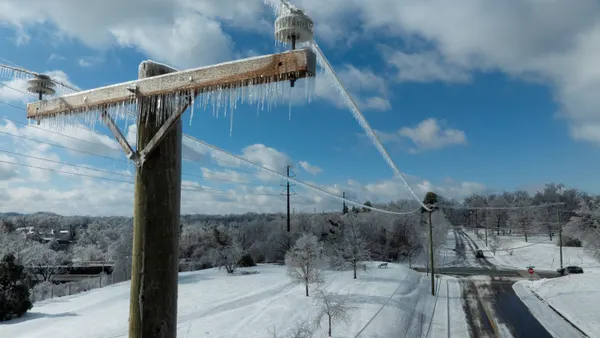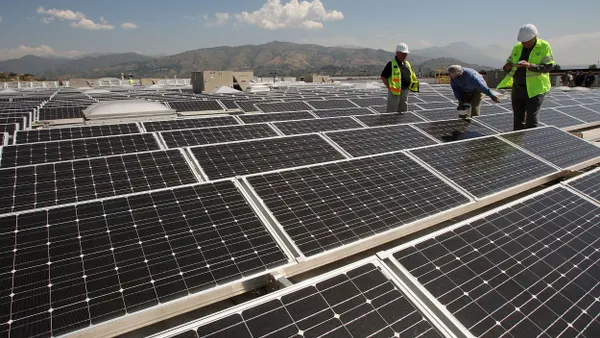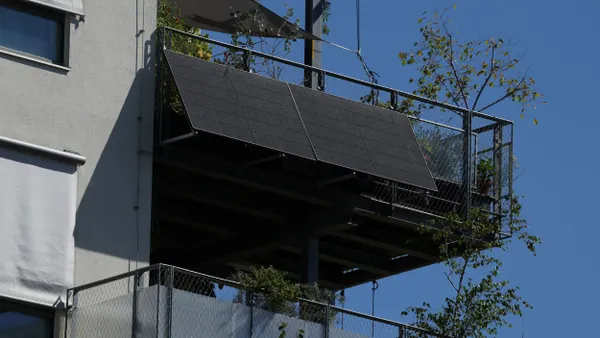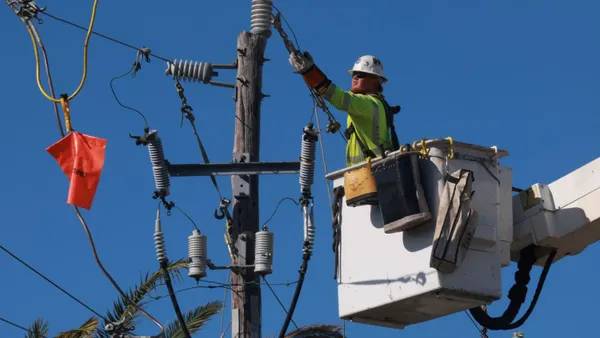Legislation directing the U.S. secretary of energy to conduct assessments of the U.S. electricity generation and transmission supply chains was approved by a House energy subcommittee on Thursday and now goes to the House Committee on Energy and Commerce.
The Electric Supply Chain Act directs the energy secretary to prepare “periodic assessments” that include “any trends, risks, and vulnerabilities in the supply, demand, and availability of components for or related to generating or transmitting electricity, including components that are necessary for the construction or deployment of facilities that generate or transmit electricity.”
The bill would require the secretary of energy to submit a report to Congress within one year of the legislation being enacted.
The bill “takes a proactive approach to identifying and addressing emerging issues that affect the power sector,” Rep. Bob Latta, R-Ohio, said in April at a hearing on ensuring domestic energy reliability. Latta, who is chairman of the House Energy and Commerce Committee’s subcommittee on energy, introduced the legislation.
Electrical equipment manufacturers say they support the bill.
“We must prioritize grid reliability by ensuring all relevant voices involved in supplying energy are at the table, including supply chain vendors and the manufacturers of critical grid components,” Spencer Pederson, senior vice president of public affairs for the National Electrical Manufacturers Association, said in a statement.
The legislation would allow grid component manufacturers and supply chain vendors to “provide the energy sector with greater clarity around their current and future capacity, opportunities for growth, and challenges related to maintaining a secure and resilient supply chain,” he said. “More insight into the grid’s component supply chains also will strengthen national security.”
Having electrical manufacturers work with the Department of Energy’s supply chain assessment will also help “identify where potential issues related to ‘foreign entities of concern’ and other emerging issues might have national security concerns,” Pederson said.
The bill calls for the supply chain assessment to include “the effects of any reliance of the United States on any foreign entity of concern” related to electrical components and “the exploration, development, or production of critical materials necessary for manufacturing such components.”
“America does not currently have the supply chain we require for true grid security,” Danielle Russo, executive director of the Center for Grid Security for SAFE, an energy and transportation security nonprofit, said in a statement. Analysis and recommendations from DOE "will be valuable in directing public policy toward strategies to secure our grid component supply chains.”
Minerals are critical energy inputs and are intensive to process, noted Abigail Hunter, executive director of SAFE’s Center for Critical Mineral Strategy.
Latta’s bill “will unearth supply chain vulnerabilities affecting our bulk power system and midstream challenges to process those minerals at home,” Hunter said. “Simultaneously securing inputs and infrastructure is the foundation for energy security and long-term industrial strength.”














